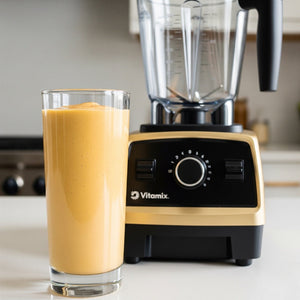Whether it’s cold and flu season or you have travel and fun planned up ahead, working on building the health of your immune system is something you can do anytime. Your immune system works to protect you from viruses and bacteria as well as from everyday toxins and pollutants. For the most part, if you take care of it, it will take care of you.
But how do you boost your immunity? It’s through a combination of simple daily health habits along with conscious consumption of targeted nutrients, and we’ll unpack all of that below!
1. Eat a Balanced Diet
Being properly fueled will make a big difference in your body’s preparedness to fight off infections. Meals that include things like quality protein, antioxidant and vitamin-rich plants, and foods that promote a healthy gut microbiome provide the building blocks for a strong immune system. Here are a few things to include in your immune-boosting meals:
Protein:
Helps maintain strength of all cells, including immune cells. Your body also needs more protein than normal while you’re sick and/or recovering. Meats, nuts, seeds, eggs, and beans are all great sources for main meals. Including 20-30g of protein in your smoothies is a great option as well. If you know me, you know I love my smoothies, so I want to leave you with a few immune-boosting favorites:
Zinc:
Can reduce duration and severity of illness. Good sources include nuts, meat, chickpeas, lentils, and beans.
Vitamin C:
The quintessential immune booster, vitamin C is well-known for its role in strengthening the immune system and is found in citrus fruits, strawberries, leafy greens, and bell peppers. If you’re looking to supplement, it’s more effective to take smaller amounts at multiple times throughout the day with meals. I like this Pique’s Liposomal C (use code BEWELL).
Vitamin B6:
Helps strengthen the linings of your GI tract and lungs, as well as your skin to keep out infections. Include foods like chicken, chickpeas, salmon, tuna, and green veggies to get a dose of B6.
Vitamin E:
Supports the development and health of immune cells. You can find this antioxidant in foods like nuts, seeds, and spinach.
Vitamin A:
Boosts immune system, keeps skin and linings of mouth, GI tract, and lungs healthy to protect against infections. Good sources include sweet potatoes, carrots, broccoli, eggs, and bell peppers.
Water:
Not necessarily classified as a nutrient, but staying hydrated helps immensely in supporting healthy immune function. It helps to keep pathogens moving and flushes out bacteria quickly. Bone broth also works as a hydrating snack! I love FOND bone broth as a top quality option (use code BEWELLBYKELLY). LMNT is another great option for electrolyte-rich hydration.
Your gut microbiome also has a huge job when it comes to immune health. One of its most important roles is to keep the lining of your intestines strong and tight so bacteria and even food particles can’t make their way into your bloodstream. Feeding your gut microbiome the right foods ensures proper function. That means including plenty of fiber and greens to feed the “good bugs” and keep the bad ones at bay. You may also consider taking a probiotic regularly to boost the population of helpful bacteria. Seed (use code 25BEWELL) is my go-to for probiotics.
The Fab Four philosophy makes it easy to eat for immune health. Instead of trying to remember all the different nutrients to include on your plate, simply focus on filling your plate with:
- Protein
- Fat
- Fiber
- Greens
Don’t get me wrong, it’s not a bad thing to know which foods contain which nutrients. But by including the Fab Four on your plate with a variety of foods, you can ensure you’re supporting your immune system without stressing about the specifics. Win-win!
2. Minimize Stress
Speaking of stress… In modern-day living, stress seems to be a fact of life. However, chronic levels of stress can cause inflammation throughout the body, which weakens the immune system over time, leaving it more vulnerable to illness and infections.
In order to protect the strength of your immune system, being proactive in stress management is important.
- Meditation is a simple technique you can practice to manage your stress. You can do this by keeping a gratitude journal, using a guided meditation app or YouTube video, or simply sitting quietly and focusing on your breath. If you’ve never meditated, don’t be surprised if it feels odd at first. You can start with just a few minutes at a time and build up!
- Adaptogens are another great option. They are natural herbs that help your body literally adapt to stress and resist fatigue. You can easily incorporate these into your life through supplements or adding the herbs to your smoothies – like in my Chaga Cacao or Ashwagandha Green smoothies! I often reach for Four Sigmatic (use code BEWELLBYKELLY) mixes to provide an easy and convenient way for including adaptogens.
Only you know what works for you! Prioritize proactive stress management now in order to reap the benefits of boosted immunity all the time!
Focus on Sleep
Adequate sleep is critical for health, particularly of the immune system! The developmental function of the immune system is linked closely with your circadian rhythm. When stress hormones like cortisol are at their lowest, immune cells are produced and migrate throughout the body. Sleep is also the time when immune cell memory peaks, meaning immature immune cells develop by learning how to combat bacteria and viruses while you are at rest.
This immune memory development allows for the contrasting action of circulating, mature immune cells to peaks while you’re awake. In other words, just as you rest at night in order to function well and efficiently during the day, your immune system does the same thing! Inadequate sleep makes this process sloppy and less effective, leaving your immune system weakened.
If you have trouble sleeping, you can begin a simple nighttime routine to help your body wind down from the day. This might include meditation, turning off your screens at a certain time (1-2 hours before bed is great), taking a calming bath, lowering lights to reduce stimulation, and incorporating a powerful magnesium supplement to relax both brain and body.
3. Move Your Body
Physical activity of any type including regular long runs, walks around the neighborhood, yoga flows or barre classes, improves your wellbeing in a number of ways. Notably, exercise causes a release of mood-boosting endorphins in your brain and is linked with decreased stress levels, which we already know is good for your immune system.
You’ll see the best outcomes if you’re moving your body regularly. Even a 15-minute walk outside has positive benefits (if you don’t believe me, listen to this podcast episode with Kelly McGonigal). And if getting out of the house isn’t an option, there are plenty of at-home resources for you. Some of my favorites include the Body By Simone app and yoga flows on YouTube or from my friend Tom with Global Tribe Retreats.
Whatever you do, simply make it a goal to move your body regularly and often!
Put It All Together
You may have noticed that these habits are linked. A nourishing diet will give you the energy you need to move your body regularly, which will lower your stress levels and help you sleep better. Focusing on improving even one area will have ripple effects throughout the rest of your life.
Having a strong immune system is crucial for fighting off infections, as well as lowering your risk for chronic diseases like heart disease and diabetes. The prescription is the same for both issues – eat well, move regularly, minimize stress, and get enough sleep.
Focusing on these cornerstone habits will keep you feeling great no matter the weather!
What I Do When I’m Sick
Sometimes sickness is inevitable. It’s a bummer, but it doesn’t mean there aren’t proactive measures we can take to support our body in feeling better faster. While this is not personal medical advice, this is what I do to support my health and wellbeing when I’m sick:
- Vitamin D - 20K IU per day
- Vitamin C/Zinc - 1000 mg 2x/day
- First Light Farms liver capsules
- WeNatal Omega 3s
- Seed probiotic (use code 25BEWELL)
- Genexa Flu Fix (use code BEWELL20)
- Quercetin - 500mg per day
- Boiron Oscillococcinum
-
Nasal silver spray
- Propolis + Zinc throat spray from Beekeeper’s
- Immune Boosting Be Well Essentials Hot Lemon Water
- If you’re struggling to stay hydrated or keep fluids down, a great way to replace electrolytes is through LMNT. It’s like Gatorade without all the added sugar and artificial flavorings.
Continue to practice stress reduction and prioritize rest as much as possible. Clear your schedule where you can. It’s okay to move your body on a short walk in fresh air and sunshine if you feel up to it, but this is not the time to push through and overdo the movement. I also like to cut sugar, dairy, gluten, and processed foods out of my diet completely and up my intake of nourishing foods if I have any appetite.
I hope this helps you get healthy and stay healthy. If you’re interested in learning more about the Fab Four or reading up on the supplements I support for healthy living, check out these resources:
- Be Well Blog
- Be Well Essentials
- Be Well Protein Powder
- Fab Four Video Courses
- Kelly’s Clean Supplement Guide
Sources:
- https://health.clevelandclinic.org/3-vitamins-best-boosting-immunity/
- https://www.eatright.org/health/wellness/preventing-illness/support-your-health-with-nutrition
- https://www.ncbi.nlm.nih.gov/pubmed/10714244
- https://lpi.oregonstate.edu/mic/health-disease/immunity
- https://www.ncbi.nlm.nih.gov/pmc/articles/PMC3256323/
- https://www.sciencedirect.com/science/article/pii/S2095254618301005






